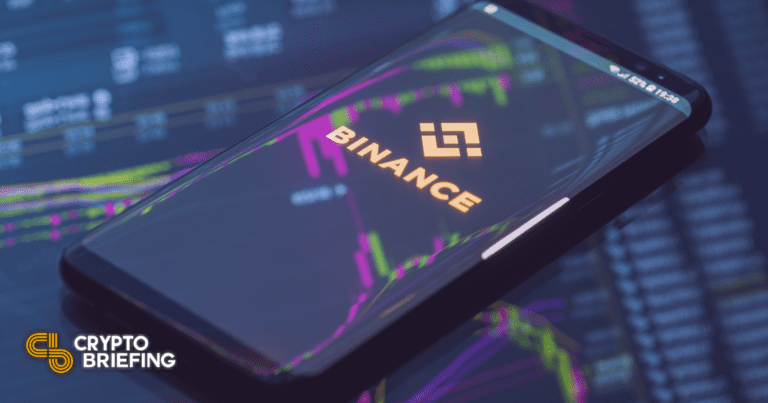Binance Delists Token After SEC Calls It a Security

Key Takeaways
Binance announced today it will delist AMP on August 15 from its U.S. platform while waiting for regulatory clarity on the token’s classification.
AMP and eight other tokens were called securities by the Securities and Exchange Commission in a recent court filing.
Binance has recently been making efforts to comply with regulators after much criticism for previously being too lax with anti-money laundering and know-your-customer requirements.
Share this article
Binance.US is shutting down its AMP trading services after it was deemed a security by the Securities and Exchange Commission in a recent filing.
Waiting for Regulatory Clarity
Binance is delisting AMP.
The leading crypto exchange announced in a blog post today its intention to delist Flexa’s AMP token on August 15 from its U.S. platform. The decision was made after the Securities and Exchange Commission (SEC) named AMP as security in a fraud case involving a former Coinbase employee.
Binance stated that, while AMP had previously passed the risk assessment process the exchange uses to decide whether or not to list a token, the SEC’s recent filing was pushing the company to delist the token “out of an abundance of caution.” Binance indicated that it would wait for further regulatory clarity before relisting the token.
Interestingly, the exchange hinted that AMP would only be delisted from its Binance.US platform, meaning that Binance customers from elsewhere in the world are likely to still have access to AMP trading services. AMP deposits will be closed on August 15 at 21:00 ET, and the AMP/USD trading pair removed two hours later.
The SEC named AMP and eight other tokens as securities in a filing on July 21 before announcing five days later that it was investigating Coinbase for listing securities. SEC chair Gary Gensler stated last week that he saw no meaningful differences between crypto exchanges and securities exchanges, and that the two should be regulated similarly.
Binance is one of the largest crypto exchanges in the world. Despite the recent market downturn the platform is currently processing over $17 billion in daily trading volume, and its U.S. branch, Binance.US, more than $400 million. Binance has been criticized in the past by regulators in the past for its lax compliance with anti-money laundering and know-your-customer rules. However, the exchange has recently been making efforts to tighten its requirements.
Disclosure: At the time of writing, the author of this piece owned ETH and several other cryptocurrencies.
Share this article
The information on or accessed through this website is obtained from independent sources we believe to be accurate and reliable, but Decentral Media, Inc. makes no representation or warranty as to the timeliness, completeness, or accuracy of any information on or accessed through this website. Decentral Media, Inc. is not an investment advisor. We do not give personalized investment advice or other financial advice. The information on this website is subject to change without notice. Some or all of the information on this website may become outdated, or it may be or become incomplete or inaccurate. We may, but are not obligated to, update any outdated, incomplete, or inaccurate information.
You should never make an investment decision on an ICO, IEO, or other investment based on the information on this website, and you should never interpret or otherwise rely on any of the information on this website as investment advice. We strongly recommend that you consult a licensed investment advisor or other qualified financial professional if you are seeking investment advice on an ICO, IEO, or other investment. We do not accept compensation in any form for analyzing or reporting on any ICO, IEO, cryptocurrency, currency, tokenized sales, securities, or commodities.
See full terms and conditions.













